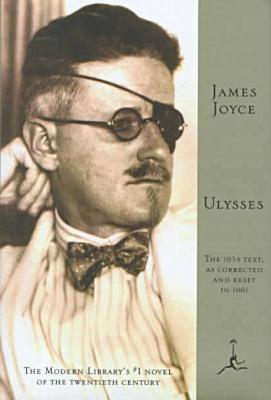
I've finally finished James Joyce's Ulysses. A work of such magnitude, symbolism, and breadth deserves a long, thoughtful post. But since when have I been in the habit of giving great writers what they deserve?
Top Five Reasons You Might Want to Read Joyce's Ulysses
- You're the sort of person who gets a kick out being able to say you've read some large, ponderous volume. Enough of a kick to actually endure said large, ponderous volumes. (This is my excuse.)
- You're getting a graduate level degree in English, and you're terrified of what will happen if your peers find out you haven't read certain large, ponderous volumes. (They won't kill you. On the contrary, they need to keep someone around they can mock. Instead, you'll receive copies of Dan Brown's work in the mail with anonymous notes saying, "This made me think of you.")
- You've heard that Ulysses is obscene, and you really prefer your erotic reading to contain no actual sex but to involve men who think constantly about sex, bowel movements, and academic theories; women who think constantly about sex, bowel movements, and how much they hate other women; and long strings of rhyming words that dissolve into jumbles of letters just for the heck of it.
- Reading twenty-five pages of dialogue that you can't comprehend makes you feel smart. (Also my excuse.)
- You've read everything else in the world, including the West Kentucky Rural Telephone Directory and the Sony M-16 VCR manual. (But in that case, you've already read Finnegans Wake, so nothing should intimidate you.)
Top Five Things I Enjoyed about Ulysses
- The complexity and breadth of Joyce's symbols: father-son relationships, Hamlet, the mother (as Freudian symbol, as Ireland, as female ideal), The Odyssey, Irish history (particularly in relationship to conflict and betrayal), Biblical stories, and... well, everything else.
- The novelty of Joyce's writing. Joyce's various styles and tones (the language of old Celtic legends, of 19th century humorists, of Bunyan's Pilgrim's Progress, etc.) are mixed with various forms (play script, Q&A catechism format, newspaper headlines, etc.).
- Joyce's use of foils to bring out his characters' personalities. (It wasn't until Bloom and Stephen were together that I really felt the distinctness of these two characters.)
- The occasional bouts of the hilariously ridiculous.
- Finishing it.
(Image from The Blue Pyramid.)
No comments:
Post a Comment